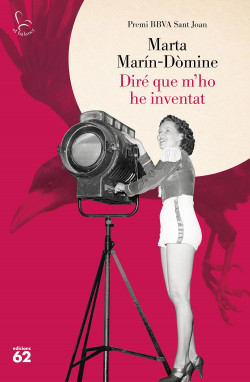BBVA Sant Joan Award ‘for the brilliant and heartbreaking way of dealing with mother-daughter relationships, avoiding clichés’.
What kind of daughter dares to tell her mother the truth? It takes literature to do so, question reality, and, if necessary, make it up. What could have turned out to be one of the happiest days of Marina’s life, the day of the birth of her only daughter, became the beginning of a far from exemplary relationship. United by their atavistic and timeless belonging and, at the same time, by an inescapable and terrifying estrangement, mother and daughter will never come to understand each other.
After returning to the same city and the same flat where she lived with her late mother, who has been dead for years, the daughter tries to pick up the pieces of their life together. A handful of photographs, a few objects and, above all, her experience as a daughter will lay the foundations for the emergence of a lonely, glittering woman, the daughter of French emigrants, with a working-class background and a bourgeois sense of taste, stuck in the grey Barcelona of the 1950s, who will see her dream of becoming an actress crumble; a rather mentally unbalanced mother, vivacious and depressive, at times seductive, at others simply cruel.
I will say I made it up challenges the established notion of maternal love, a bond historically considered unquestionable. The result is at once a private and universal tale with gothic echoes, an intelligent essay on who we are, the things we hide, and the limits of “truth” in writing.
